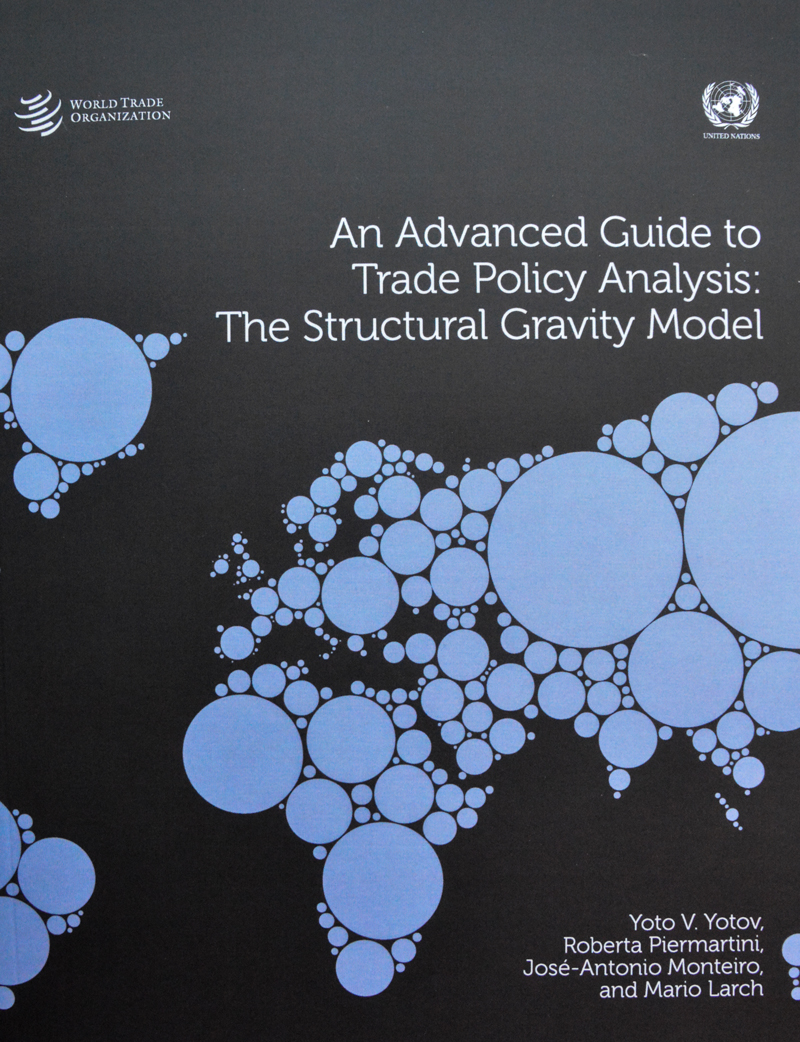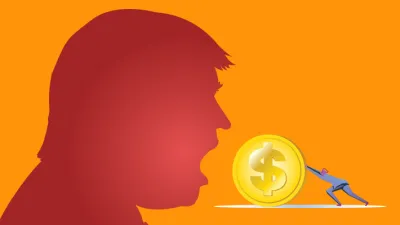
Gravity Is the Law in Global Trade

Yoto V. Yotov, associate professor of economics, credits an early interest in physics with putting him on the path to becoming one of the world’s authorities on the structural gravity model of economics. His new book on the topic, “An Advanced Guide to Trade Policy Analysis: The Structural Gravity Model,” was recently published in a partnership between the World Trade Organization (WTO) and United Nations Conference on Trade and Development (UNCTAD).
The book was born out of series of seminars Yotov has developed and taught to international researchers and policymakers at the World Bank, U.S. International Trade Commission and WTO. The rigorous theoretical foundations and the intuitive appeal of the Yotov’s work were so well received at the WTO that he was asked to contribute a chapter to a book they were compiling. He agreed, and the manuscript for that chapter quickly grew into a book that drew the interest of both the WTO and UNCTAD. “Professor Yotov has developed important approaches that allow us to measure the impact of global reductions in trade costs, not just bilateral reductions. This is an important improvement in technique that allows for a more accurate assessment of the impact of the WTO in world trade as WTO agreements are global and not bilateral,” says WTO Chief Economist Bob Koopman.
The model is attractive for a number of reasons, but its similarity to Newton’s law of universal gravitation is what originally attracted the physics-minded Yotov. “The closer and the bigger the countries are, the more they trade. Just like the Newton equation captures that the bigger and closer the objects are the more they affect each other. They look remarkably similar,” Yotov explains.

The equation and theory that support the structural gravity model have proven remarkably accurate even in today’s somewhat turbulent economic climate. “The model predicts bilateral trade flows with probability between 60 and 90 percent, and it works equally well with aggregate data as well as with sectoral data for both goods and for services,” Yotov says.
Another appealing feature of the structural gravity model is that it can be nested successfully into a series of broader and more complex models that can be used to capture the links between trade, labor market outcomes, growth, the environment etc. in a general equilibrium setting. This allows researchers and policy makers to quantify the impact of unilateral, country-specific policies (e.g. tariff changes, signing free trade agreements, or building of a border wall) on the performance of the economy imposing the policy but also its impact in the rest of the world. This type of analysis generated interest in Yotov’s work from the World Bank, the European Commission, the United States government and the Canadian government. André Downs, Chief Economist, Global Affairs Canada explains that Yotov’s “research advances our understanding of the economic activity between Canada and the United States. We are extremely pleased to have partnered with such a knowledgeable and reliable academic colleague, and expect the relationship to continue in the future.”
As a new administration gets set to take the reins of the American economy, a new approach to free trade seems likely. With that in mind, Yotov has already been using the gravity model in his graduate trade policy course to evaluate the effects of increased trade regulation between the United States and Mexico in particular. “With all the expectations about changes in American trade policy, as the world’s most important economic player, this type of analysis is more relevant than ever.”


